2023

Digital rights and the protection of the right to asylum in the Charter of the European Union
The right to asylum, as delineated in Article 18 of the Charter of Fundamental Rights of the European Union (EU) (‘the Charter’), does not grant the right to asylum to every individual seeking it. Instead, it articulates that everyone is entitled to have their application for international protection examined in line with international and EU law. This principle is reinforced by Article 19 of the Charter, which strictly prohibits collective expulsions and forbids the removal, expulsion or extradition of any person ‘to a State where there is a serious risk that he or she would be subjected to the death penalty, torture or other inhuman or degrading treatment or punishment’.

The new proposal on the security of EU information: a wider but incomplete legal framework for classified information
Part 3 of a series /// The proposal on security of EU information, as introduced, would create a legal framework for classified information with a number of gaps and loopholes that would prevent the European Parliament and the Court of Justice from exercising their roles as set out in the EU treaties. Changes are required to fix these problems.

The proposal on security of EU information: how to burst the bubble and open the EU fortress
Part 2 of a series /// The Commission's proposal on security of EU information threatens to fatally undermine the rules on access to documents, which are essential for transparency, openness and public participation in democratic-decision making. The European Parliament and the Council need to take action to fix the proposal on security of information. At the same time, there are clear steps they could take to improve the access to documents rules, ensuring that legislative deliberations are as open and transparent as required by the treaties.

The proposal on security of EU information: transforming the “bubble” into a “fortress”?
Part 1 of a series /// EU institutions are currently discussing a proposal for a new law "on information security in the institutions, bodies, offices and agencies of the Union." While the objective itself may be legitimate, the proposal as it stands seeks to extend to other EU institutions and agencies the secrecy and opacity that has for so long characterised the work of the Council. It undermines existing legislation on public access to official documents and would fatally undermine the treaty obligation for the institutions, bodies, offices and agencies of the EU "to conduct their work as openly as possible." At the same time, the proposal fails to ensure the interinstitutional and interagecy cooperation necessary to ensure an effective administration.

Telling the story of EU border militarization: messages, principles and language
Addressing and preventing European border violence is a huge but necessary strategic challenge. This guide offers framing messages, guiding principles, and suggested language for people and organisations working on this challenge. It emerges from a process of discussion online and in-person between over a dozen organisations working in the European migrant justice space.
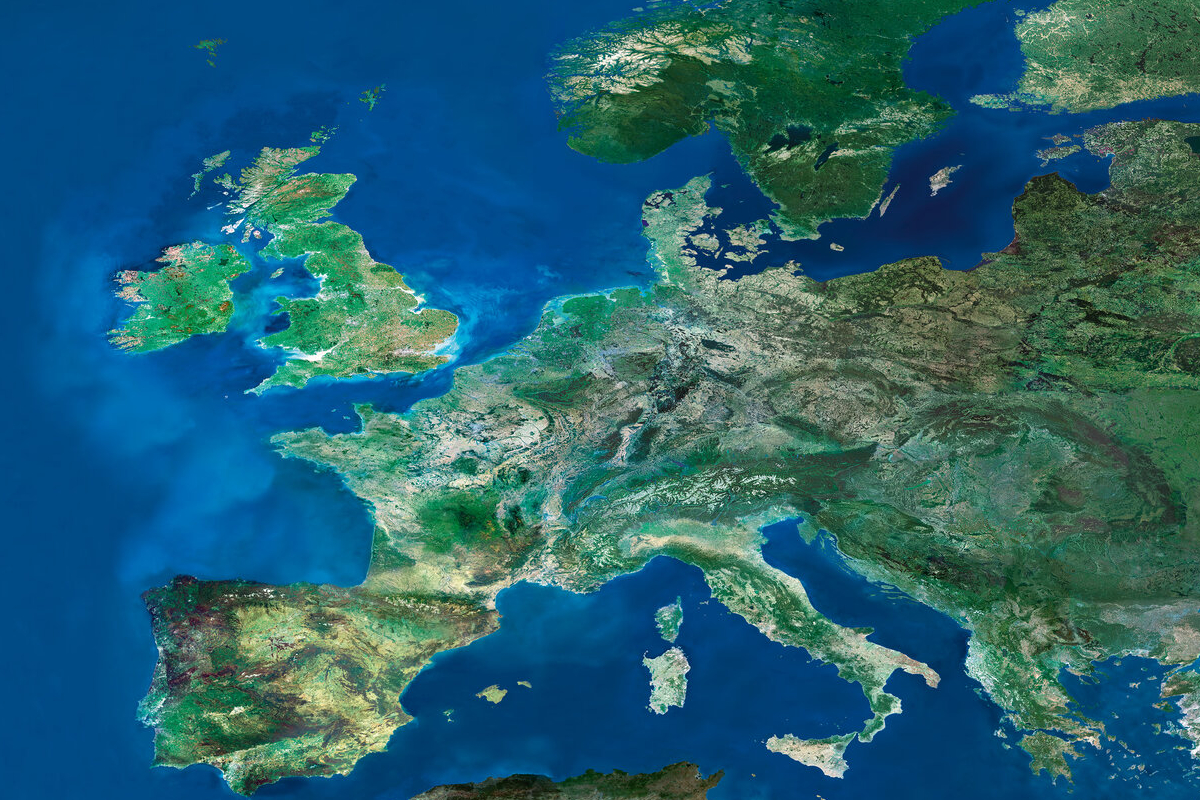
International police data-sharing: what are the UK and EU cooking up?
For the last few years, British and European officials have been seeking ways to regain the ability to instantly share police data across borders – an ability that was lost after the UK left the EU at the end of 2020. The plan currently under development is to build a new data-sharing architecture encompassing the UK, the EU and other “international partners,” but substantive details of it are being kept under lock and key. The implications go beyond privacy and data protection, and raise questions about the potential uses of a new system to crack down on the right to protest, as well as the right to seek asylum.

Externalisation of migration control: from the 1990s to the present
A talk given by Statewatch researcher Yasha Maccanico at the TransBorder Camp in Nantes, July 2022.

The green police: anti-mafia powers for environmental crime investigations?
The European Commission's proposal for a new environmental crime Directive will significantly strengthen law enforcement powers. As well as introducing a range of new criminal offences at EU level, the proposed Directive encourages the use of intrusive policing tactics against suspected environmental crime offenders. Member states, however, aim to water down the Commission’s proposal to reduce the obligations on national authorities, and are concerned about what they see as an attempt to ‘overharmonise’ national criminal laws.
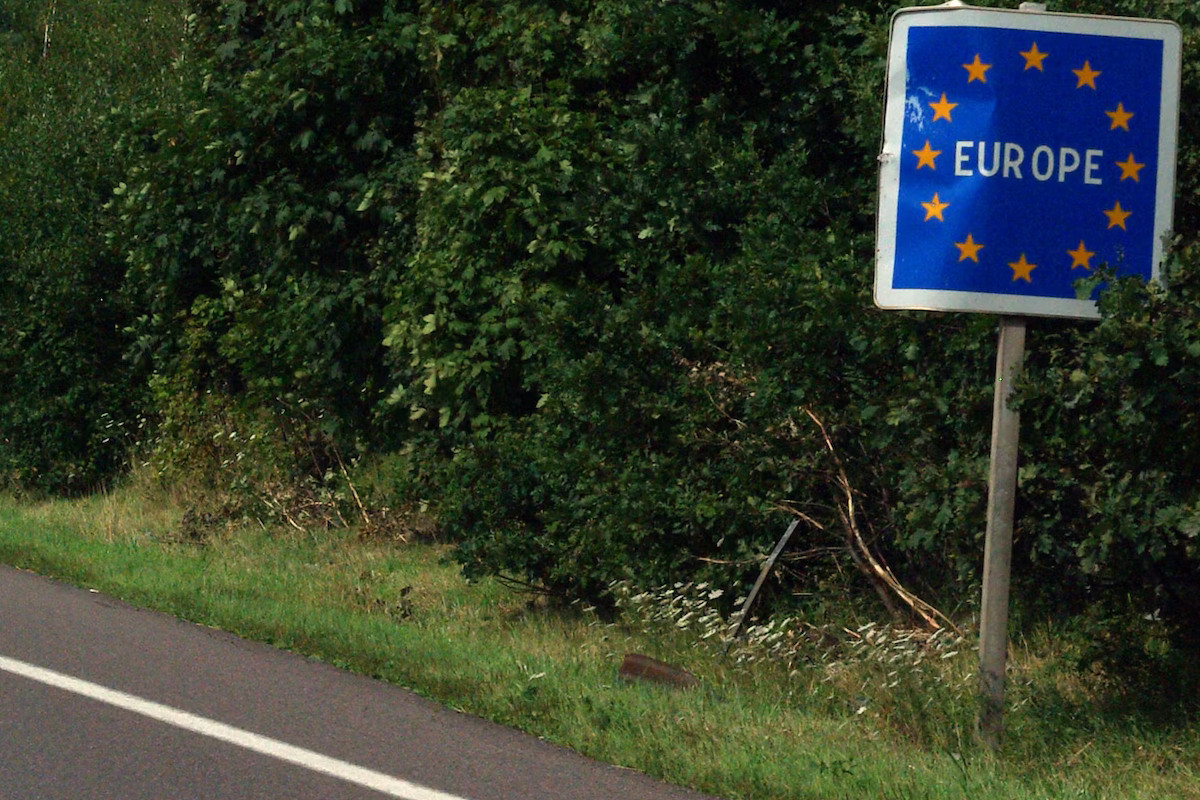
Viewpoint: How to make fences and influence people: a simple guide
Are you an EU member state looking to divert attention from the human rights abuses you are committing at your border? By following this simple guide, you can ensure that not only will the European Commission, the “Guardian of the Treaties”, turn a blind eye to those abuses, but that you will receive a healthy cash injection at the same time!
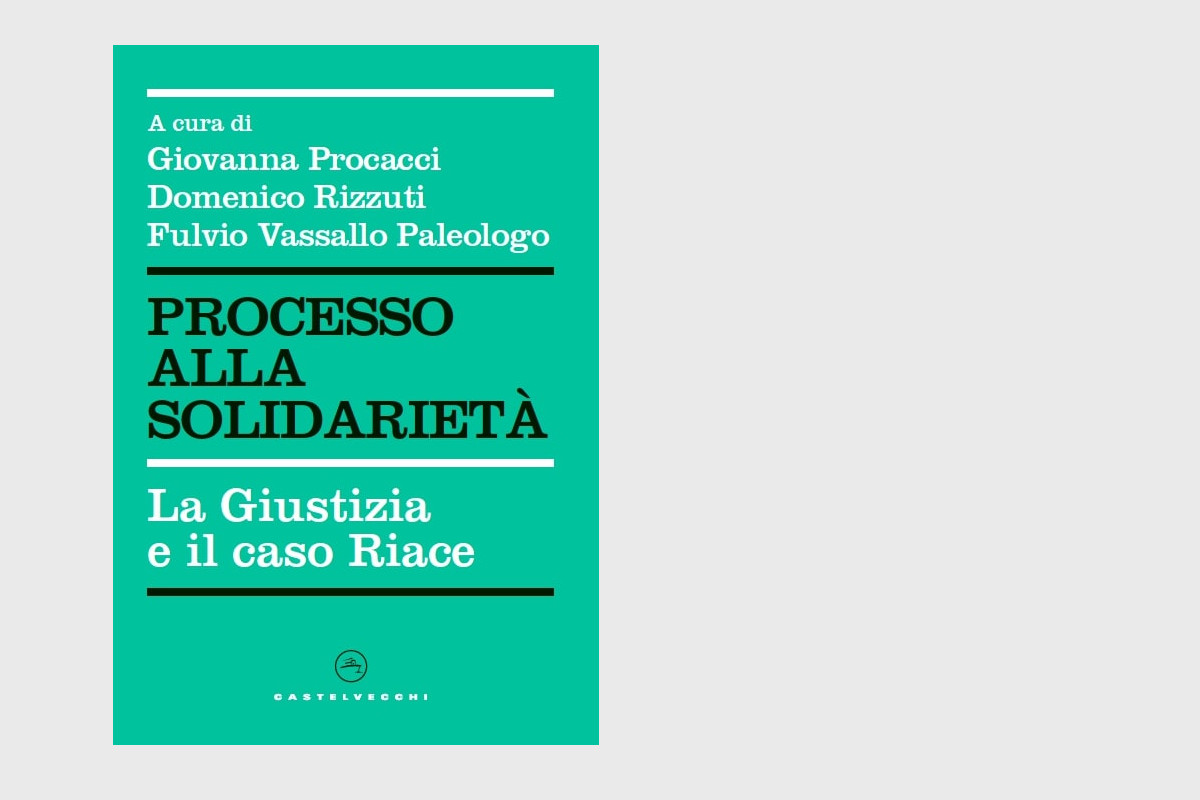
Prosecuting solidarity: extracts from a new book on the Riace case
A book about the political use of judicial proceedings to curtail a virtuous example of solidarity at work in reception practices in a small southern town in Calabria, Riace, led by its former mayor, Mimmo (Domenico) Lucano. Hearings of the appeal trial in Reggio Calabria are underway, after the first trial in Locri (whose sentence is commented on in these two extracts) found several defendants guilty, imposing lengthy prison terms (over 13 years for Lucano, over 80 years in total for 18 defendants) and financial penalties. The contributions to this book focus on the trial, the sentence, the appeal and the reality of the experience of Riace, including trial monitoring reports by Giovanna Procacci.

Submission to European Commission consultation on "security-related information sharing"
The Commission’s initiative for a ‘Security-related information sharing system between frontline officers in the EU and key partner countries’ is a further development along the path of problematic border externalisation, and a trend of increasing use of large-scale processing of the personal data of non-EU citizens for combined criminal law and immigration control purposes, that civil society has been speaking out against for years.
“Call them crazy”: Criminalisation of activists undermines rule of law in the EU
The Dutch police continue to disregard the rule of law to criminalise the pacifist activist Frank van der Linde. In recent years, his personal data has been sent to Europol, he has been labelled a terrorist, and police have suggested he be referred to a psychiatric facility. Far from an isolated case, van der Linde’s story shows just how far police in Europe will go to criminalise the right to protest and stifle political dissent.

Migration policy overspill: access to information in peril
It is well-documented that the externalisation of migration and border policies by the EU and other western states has led to appalling violations of human rights. While this is by far the most important issue resulting from border externalisation, there are also many other negative effects - including attacks on the right to access and impart information.
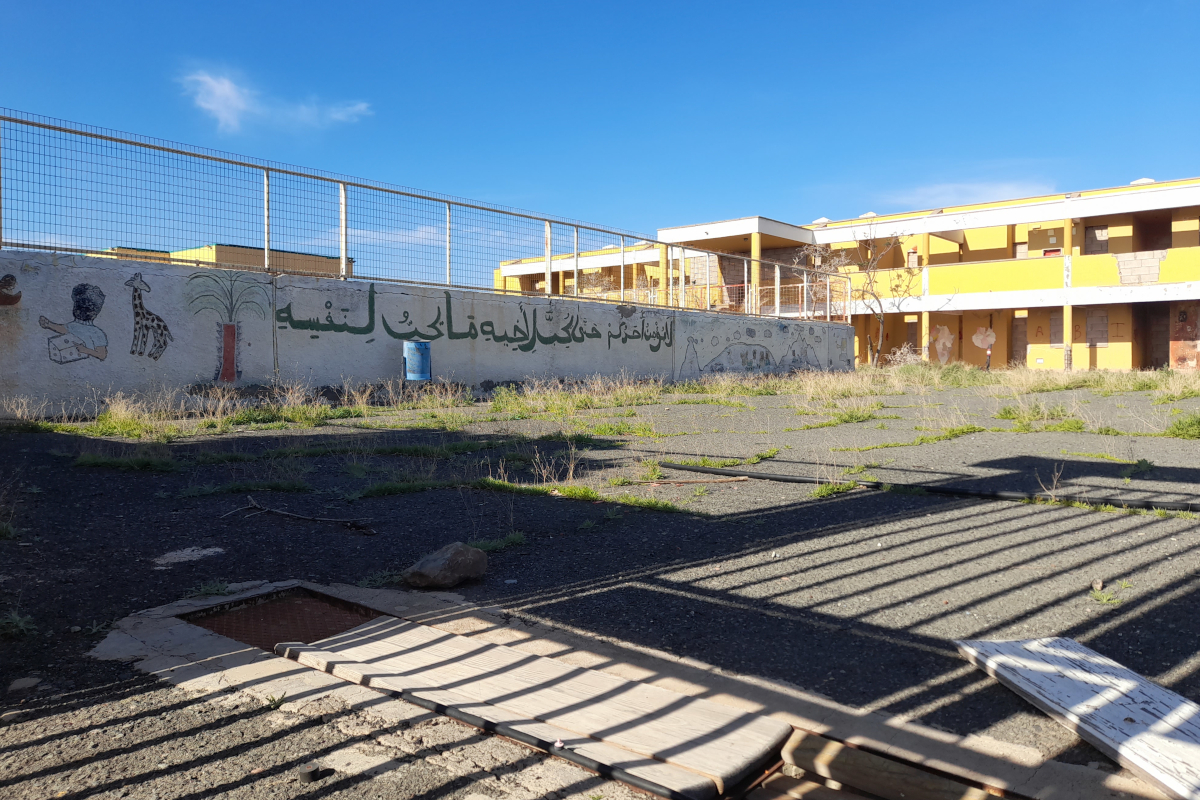
Unaccompanied and separated children: patterns of child migration are changing at the southern Spanish border
Since the early 1990s thousands of "unaccompanied and separated children" have arrived on Spanish territory. The authorities have frequently violated their rights. Policy changes and other events have led to migration patterns shifting over the years. A debate is needed over the facilities and care provided for child migrants, who at the moment are often housed in large facilities that do not meet their needs or uphold their rights.
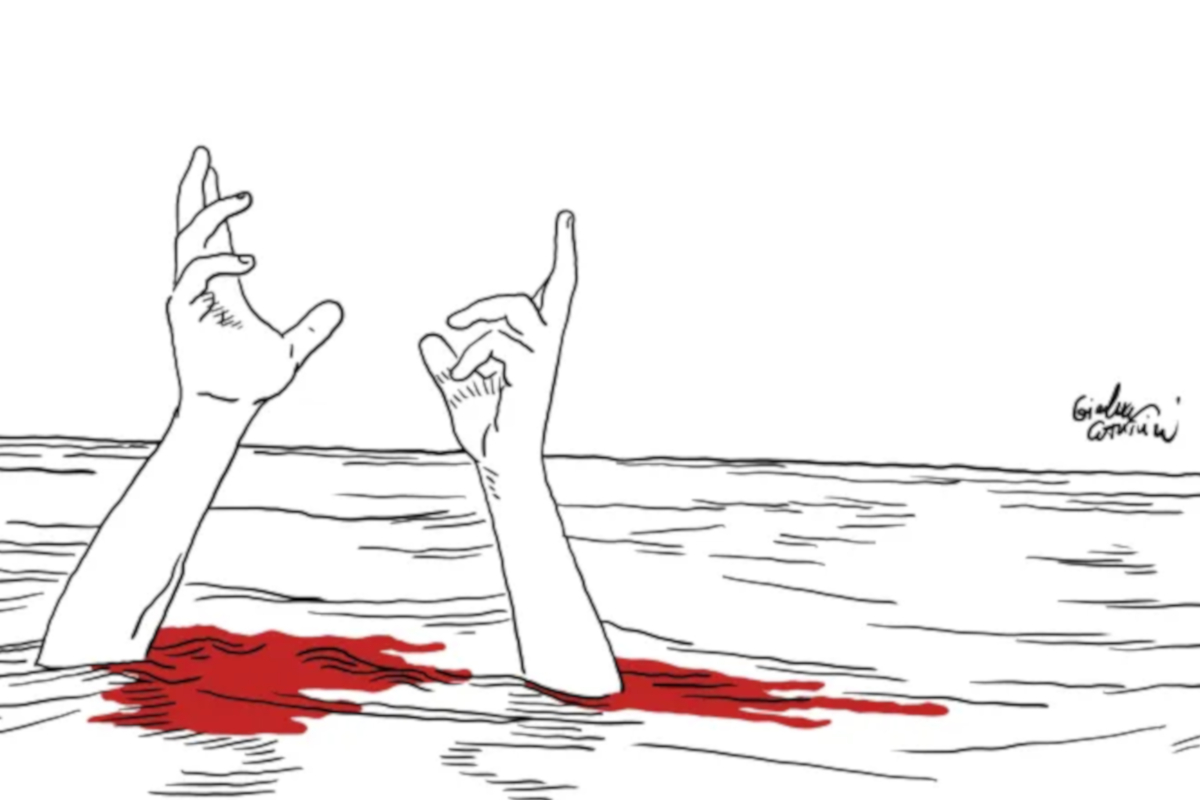
Pushbacks, migration policy and returns at the core of EU support for authoritarian regimes
The ongoing debate on pushbacks and rights violations at external EU borders neglects an important aspect: the EU and its states betray their claimed goal to promote human rights, the rule of law and civil society development worldwide by helping authoritarian regimes oppress their citizens, and also to stop them from leaving.
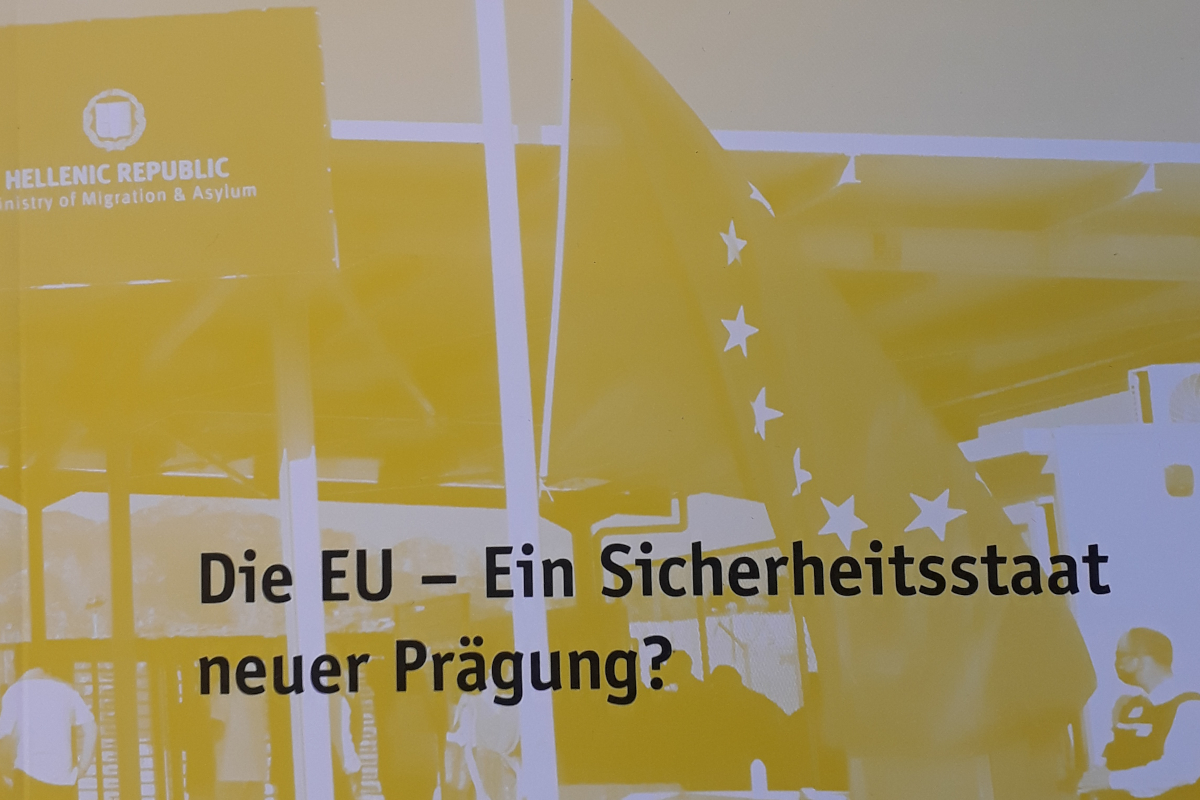
The European Union and its crises
Since the Amsterdam Treaty of 1999, various crises have served as a pretext for expanding EU security structures and the powers of repressive authorities. Politically motivated human rights abuses remain the order of the day and have been exacerbated by the recent “migration crisis” at the EU's eastern borders.
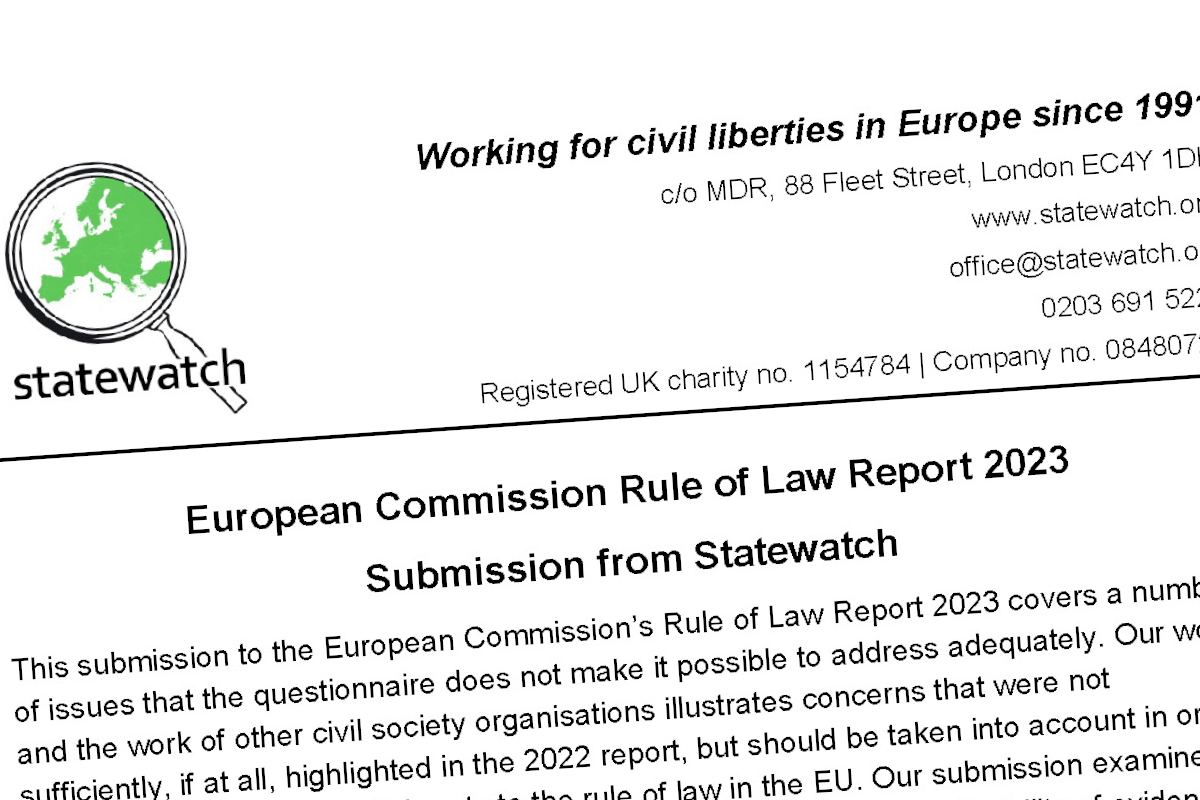
Submission for the EU Rule of Law Report 2023
On 20 January, we filed a submission to the European Commission's public consultation for its Rule of Law Report 2023, which will cover developments in 2022. Our submission highlights a number of topics - in particular regarding rule of law issues at EU level, surveillance, access to an effective remedy and the criminalisation of the press - that have not received sufficient attention in previous iterations of the report.

Frontex and deportations, 2006-21
Data covering 16 years of Frontex’s deportation operations shows the expanding role of the agency. We have produced a series of data visualisations to show the number of people deported in Frontex-coordinated operations, the member states involved, the destination states, and the costs.
Spotted an error? If you've spotted a problem with this page, just click once to let us know.